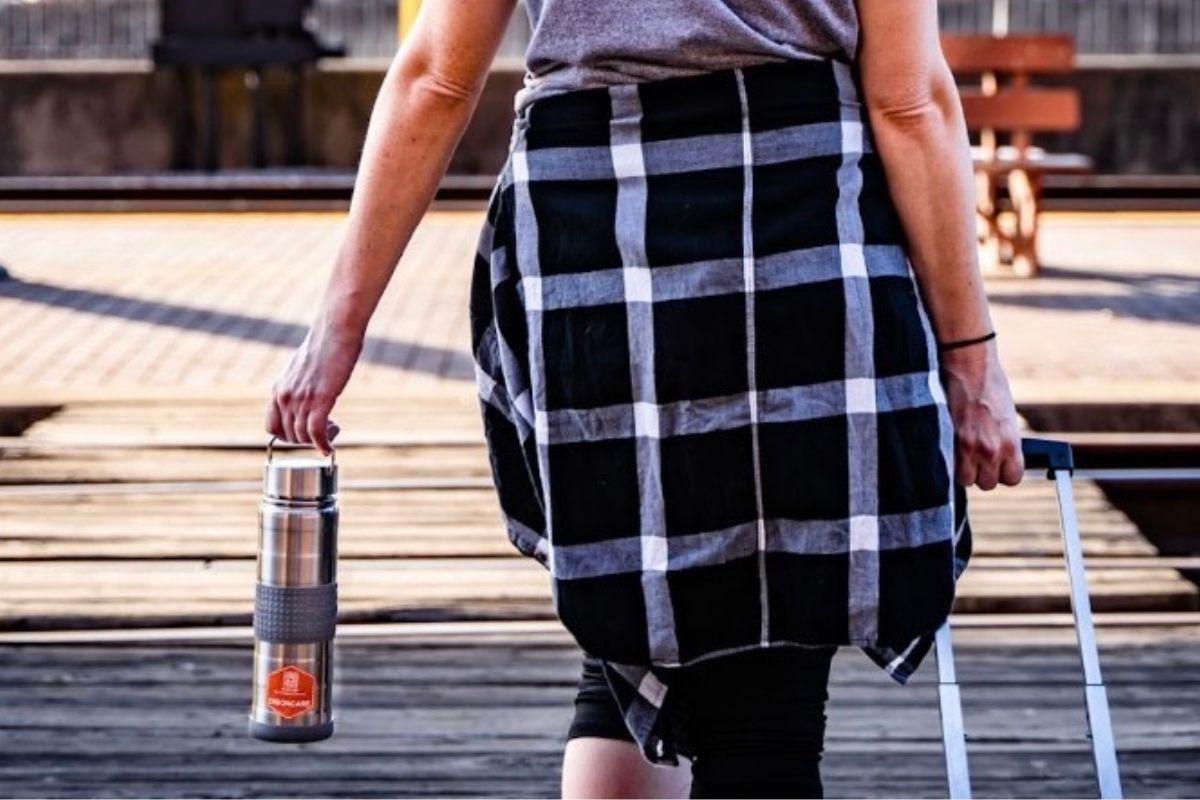Stay safe, stay cool — wherever your health journey takes you
Whether you’re managing diabetes, using GLP-1 medication like Ozempic®, or carrying breast milk on a family trip, temperature-sensitive medicine requires extra care while traveling. A few hours in the wrong environment can mean wasted medication, lost money, and interrupted treatment.
Luckily, with the right preparation and products — including DISONCARE’s coolers — you can travel safely, confidently, and stress-free.
🌡️ Why Temperature Control Matters
Many modern medications — especially biologics and injectables — are sensitive to heat and freezing.
Exposure to extreme temperatures can:
-
Reduce potency or make the medicine ineffective
-
Cause separation or crystallization in liquid formulas
-
Trigger unwanted side effects from degraded ingredients
Here’s how temperature guidelines break down:
| Medication Type | Safe Temperature Range | Storage Duration (Typical) |
|---|---|---|
| Insulin | 2°C–8°C (36°F–46°F) | Until expiration date |
| GLP-1 meds (e.g., Ozempic®, Wegovy®) | 2°C–8°C (36°F–46°F); after opening ≤30°C (86°F) | 56 days after first use |
| Antibiotics or vaccines | 2°C–8°C (36°F–46°F) | Varies by brand |
| Breast milk | ≤8°C (46°F) | 24–48 hours in cooler |
📚 Sources:
✈️ Smart Travel Tips for Keeping Medicine Cool
1️⃣ Use a Reliable Medical Cooler
A standard lunch box or ice pack won’t cut it for temperature-sensitive medication.
Instead, use a purpose-built medical cooler, like DISONCARE’s Hard Insulin Cooler, designed to:
-
Maintain 2°C–8°C for up to 48 hours
-
Fit multiple pens, vials, or bottles
-
Resist outdoor heat and TSA-approved for carry-on
💡 Tip: Pack your medication in the cooler and include a thermometer or built-in temperature dial to monitor conditions on the go.
2️⃣ Keep Medications in Your Carry-On
Avoid storing medicine in checked luggage — cargo areas can reach extreme temperatures.
Instead:
-
Keep meds in a separate, easily accessible bag.
-
Notify security that you’re carrying temperature-sensitive medication.
-
Bring a doctor’s note or prescription label for TSA or customs.
3️⃣ Use Cooling Elements — But Don’t Freeze
Use ice packs or gel packs, but never let them directly touch medication.
Wrap ice packs in a cloth or place a barrier between them and the vials/pens.
Freezing destroys many biologic drugs, so maintaining a steady cool zone (not frozen) is crucial.
4️⃣ Plan for Long Trips
If your travel exceeds 24 hours:
-
Bring extra cooling elements and rotate them.
-
Ask airlines or hotels for access to a refrigerator or medical storage.
-
Carry portable coolers (like DISONCARE’s Odyssey Cooler) during layovers or hotel stays.

5️⃣ Know the Signs of Spoilage
Always inspect your medicine before use:
-
Is it cloudy or has particles?
-
Has the color changed?
-
Was it exposed to high heat or direct sunlight?
If yes, discard it safely and contact your provider.
📚 Source:
🧳 Best DISONCARE Products for Travel
🧊 DISONCARE Hard Insulin Cooler
-
Maintains 2°C–8°C for up to 48 hours
-
Perfect for insulin, Ozempic®, Wegovy®, or other injectables
-
TSA-approved, durable, and portable
💼 DISONCARE Soft Cooler Bag
-
Lightweight, flexible, ideal for day trips
-
Keeps meds or breast milk cool for up to 8–12 hours
-
Great for short errands or office use
🍼 DISONCARE Breast Milk Cooler
-
Dual-compartment design for bottles and ice packs
-
Keeps breast milk fresh and travel-ready
-
Ideal for pumping moms on the move
✨ All coolers include precision temperature control — combining safety, science, and convenience for modern travelers.
🌟 Final Thoughts
Your medication is essential — and protecting it should be easy.
Whether you’re managing diabetes, starting GLP-1 therapy, or traveling with breast milk, temperature control means peace of mind.
With DISONCARE’s reliable coolers, you can focus on your journey, not your medicine.
Stay prepared. Stay cool. Stay confident — with DISONCARE.
📚 References
-
Centers for Disease Control and Prevention (CDC). Vaccine Storage and Handling Toolkit.
-
Novo Nordisk. Ozempic® Product Label and Storage Instructions.
-
U.S. Food and Drug Administration (FDA). Safe Disposal of Medicines.
-
American Diabetes Association (ADA). Insulin Storage and Travel Tips.

